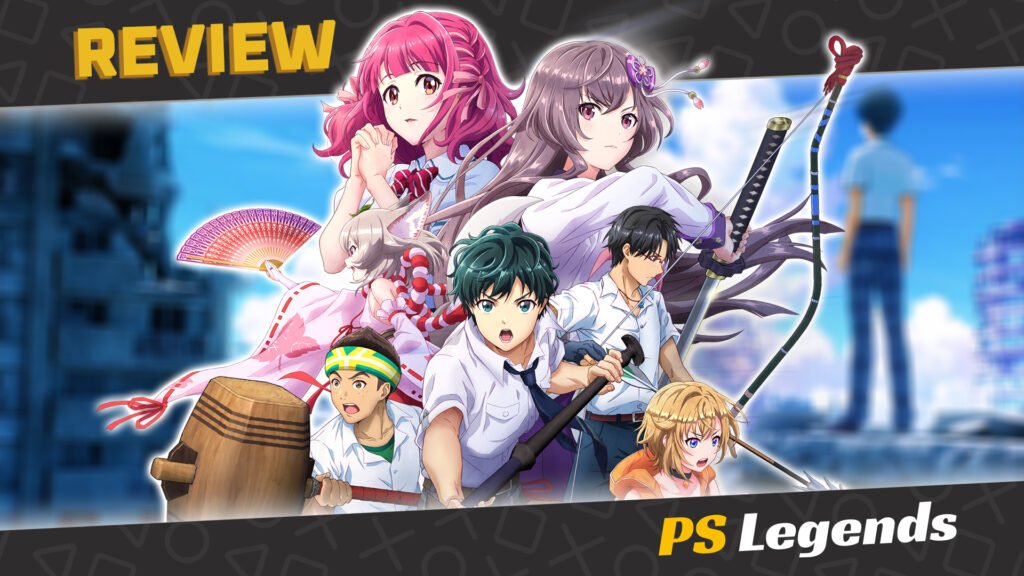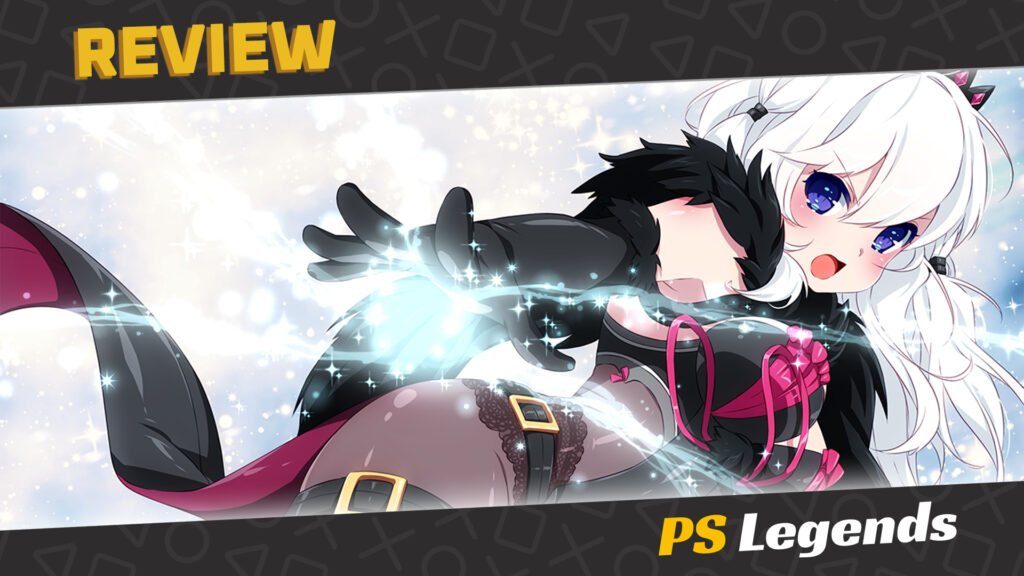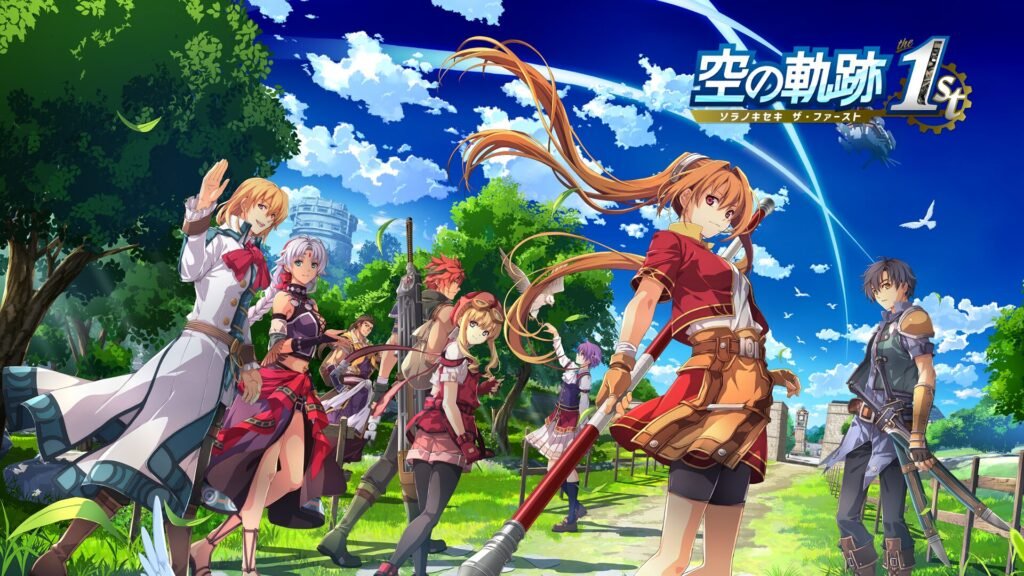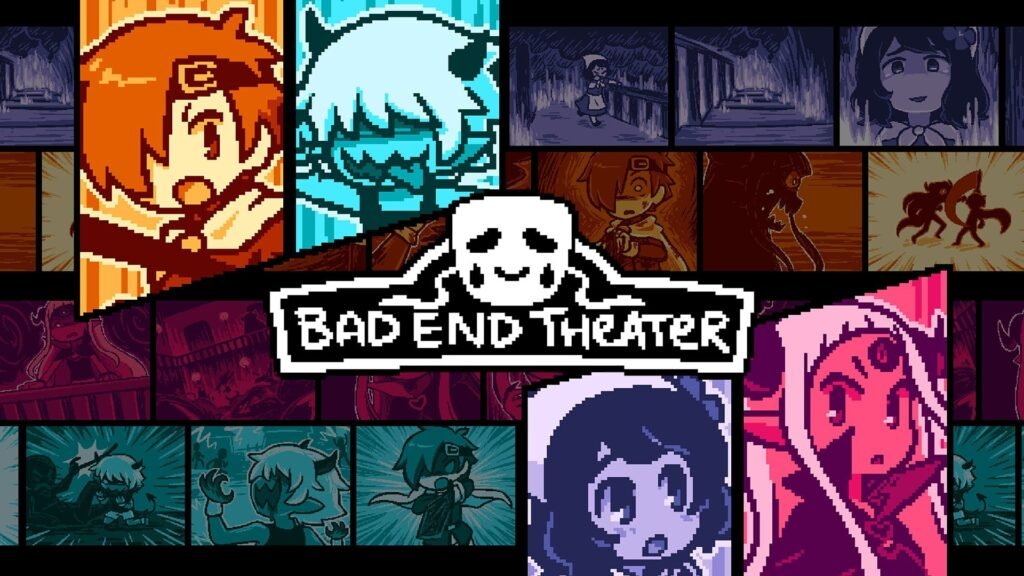As a somewhat worldly fellow with an eye for other cultures and philosophies, I’m rather proud to seek out games which include controversial content, if only to break down and digest what makes the game tick, seeing if such an inclusion is even worthy of criticism in the first place, and examining the content’s place in the overarching narrative.
By taking the time to understand games which are often misunderstood, we can approach critique with more respectful intentions, and maybe even stand up for an underdog in the process. Loop8: Summer of Gods, despite falling loosely into a category of games which I’d consider my area of expertise, slipped under my radar for a while.
When this odd fusion of ideas finally graced my console, I soon found a very welcome comparison which seemed so obvious even at a cursory glance, and yet every other review I’ve read of the game seems to miss the game’s similarities to Blue Reflection entirely, instead relying on lazier, more overstretched comparisons to Persona games or conventional visual novels, which isn’t quite right.

Introduction
Loop8: Summer of Gods is a Japanese role-playing game which also incorporates visual novel and dating sim mechanics. The game was developed by Sieg Games and published by Marvelous Entertainment and XSeed Games. The game was produced by Yoichi Miyaji, who previously worked on entries in the Lunar and Grandia series of games. It released on June 6th, 2023 for PlayStation 4.
Returning to the game’s comparison to Blue Reflection, Loop8 is also a JRPG with an unconventional growth system, placing less emphasis on combat and physical strength, and more on character growth through their interactions with others, with the strength of relationships directly impacting your combat efficiency.
This isn’t the only way Loop8 and Blue Reflection share similarities, as the pair also feature content which has divided their respected audiences. With Blue Reflection featuring same-sex teen dating and the inclusion of partial nudity in realistic situations, Loop8 opens multiple possibilities for finding love where you can, and how far you’ll take an unorthodox relationship when the fate of the world may well depend on its success.

Story
The game takes place in an alternate, post-apocalyptic version of history, set in the year 1983. The world has been decimated by the emergence of a race of extra-dimensional demons known as the Kegai which have the ability to possess and corrupt humanity. Humans have been forced to find unusual ways to survive, such as retreating to orbiting space stations or isolated off-grid communities.
The game follows the main character, Nini, a male teenager who grew up in a space station that was destroyed by the Kegai. He is the sole survivor, and after retreating to the small, fictional Japanese town of Ashihara to reunite with a few distant family members, he becomes gifted with a special ability known as “Demon Sight”, allowing him to see what other characters are thinking and how they are feeling.
Nini can also reset events and try them again, either by failing to save the world, or manually resetting by speaking to a certain character. Nini finds refuge in Ashihara in August, and spends his time making connections in the town in efforts to find the Kegai before they destroy Ashihara as well. The game’s title of Loop8 refers to its premise, as Nini continually relives (“loops”) his time in the month of August (the eighth month) to find and eliminate the Kegai.

Gameplay
Loop8 plays as a narrative-heavy JRPG with turn-based battles. The story is advanced through reading text and selecting response options through a dialogue tree. Multiple paths and endings can occur based on these choices. Time management is also a key component as the game plays out on a calendar system, with various actions and choices taking up units of time. A character’s reactions will vary based on when they are addressed by the player, in line with their personal schedule.
In addition to detecting the presence of Kegai, Nini can also use his “Demon Sight” to get a sense of people’s emotional states. Taking into consideration how other characters feel about Nini, their personal tastes and availability helps with suggesting suitable activities to improve your relationships. Characters’ relationships will change in response to your choices. These decisions influence character dialogue and how characters feel about each other, and this will heavily influence the story’s outcome.

The Kegai lurk among the locals, possessing people, and so you’ll need to pay close attention to anything out of the ordinary. After identifying a Kegai’s human host and meeting certain requirements, you can seek the Kegai’s true form in Yomotsu Hirasaka, a place bordering the human world and the afterlife. Besides dealing with attacks from weaker Kegai, Nini will also face a variety of other challenges depending on his relationship with the Kegai’s host.
While you control Nini in turn-based battles, your two party members will act according to their own emotions and personal relationships. The bonds you’ve forged with anyone possessed by the Kegai will also have an impact on the battle’s outcome. Instead of gaining levels, in Loop8 you grow stronger by training different stats as part of your everyday life. Forging deeper bonds will gain the attention of the divine, who will reward those involved with significant boosts to their stats.

Graphics/Sound
Loop8 has a visual style in mind for its presentation and follows that vision through. The game looks like a turn-of-the-millenium anime TV series, comprised of diverse characters and vivid colour schemes, detailed environments with pretty distant scenery, and a choppy frame-rate reminiscent of cut-budget animation. The low frame-rate doesn’t work so well in combat though, where attacks look sluggish and underperformed.
For a game produced on something of a middling budget, Loop8 is blessed with an impressive English dub featuring an extended cast of voice acting A-listers, including Xanthe Huynh, Cristina Vee, Risa Mei, Jennifer Losi, Erin Yvette, Suzie Yeung, Kimberly Woods, and Crispin Freeman. A gentle yet atmospheric orchestral soundtrack rounds out the solid audio.

Characters and Controversies
The concept of divine intervention plays a big part in Loop8’s narrative, with the old gods of creation largely choosing not to interfere with humanity’s path of growth and annihilation, until a desperate few begin sending divine messengers to give Nini and the last remnants of humanity a fighting chance against the Kegai. The adorable fox-girl goddess Beni is sure to be a fan-favourite.
In many ways, your greatest ally is Musasa, an otherworldy sentient flying squirrel creature. She’s a somewhat mischievous soul who acts as an envoy for the gods who avoid communicating directly with humanity. It seems the current branch of divinity view humanity as some sort of soap opera and will reward Nini and his companions with blessings when they deliver that bit more drama in their relationships, announced with a loud “Ta-da!”
Growing your relationships with your classmates and other townsfolk is your key to success, and as with any relationship, enough growth opens up the possibility of romance, and that’s where Loop8’s controversy kicks in. Most characters can be romanced, regardless of whether they’re male, female, human, or something else entirely, and so those without an open mind may find themselves overwhelmed by the option of relationships which they may consider inappropriate; things can, and likely will, get weird.

Want Nini to embrace his blossoming homosexuality with a same-sex relationship or two? You absolutely can. Want to try out a mystical anime stereotype by having Nini romance the adorable fox-girl Beni? Yep, you can do that too. How about a realistic-looking android girlfriend? Yes, wannabe human Machina is another option. So far nothing too controversial, so let’s up the ante…
We can also romance Nini’s first contact, his cousin (though more likely a distant cousin) Konoha. There’s also Micchi, a freshman at Ashihara High and a social outcast; She is depressed, suicidal, and incredibly nihilistic. Takako is a tall, often mature, lonely 6th grader (around 11 years old) who hangs out at Ashihara High. Terasu is an unemployed drifter and camper; Since time flowed differently on Nini’s space station compared to Earth, she’s actually Nini’s grandmother at a youthful 29 years of age. Yep, they went there.

Conclusion
There’s something comfortably familiar about Loop8, and this doesn’t come from the gameplay or the unusual take on relationships. Loop8’s surrealist storytelling has similar themes to coming-of-age anime dramas with sci-fi sub-plot twists, much like series such as Mahoromatic or Elfen Lied. The TV anime aesthetic also plays into this, with textbook bold colours and impressive visual details, yet low in frame-rate.
We can experience the ordinary, attending high school and exploring Ashihara while also building relationships with the town’s residents, and this serves as an intentional distraction from what’s going on behind the scenes. Time is always passing, and yet the player, as Nini, and our surrounding entourage of characters can spend our days however we please. There’s a homely freedom to it.
Transcending the mundane, there’s a bold, brave basis for the story in Loop8 which feels like a modern twist on ancient myths and legends. The concept of a time loop repeating until a significant change in the course of history is implemented is a fascinating concept pulled straight out of Celtic mythology’s use of repeated cycles, while the Kegai could well be some aggressive species of malevolent Yokai from Japanese mythology.
It’s a fascinating story, though the anime sub-surrealism may leave many finding this twisted world somewhat unbelievable, and this could further limit the audience by the additions of relationships which only the most open-minded of liberals may tolerate. If you can get past these significant hurdles, then there’s an intriguing guilty-pleasure game here for you, but it’s one that you’ll need to put the hours into to reforge those relationships, over and over again, loop after loop. Tolerance and patience are essential.

Joys
- Interesting, character-focused progression
- Beautiful visuals
- Solid voice acting
Cons
- Highly repetitive nature
- Combat could use some polish
- Controversial content



